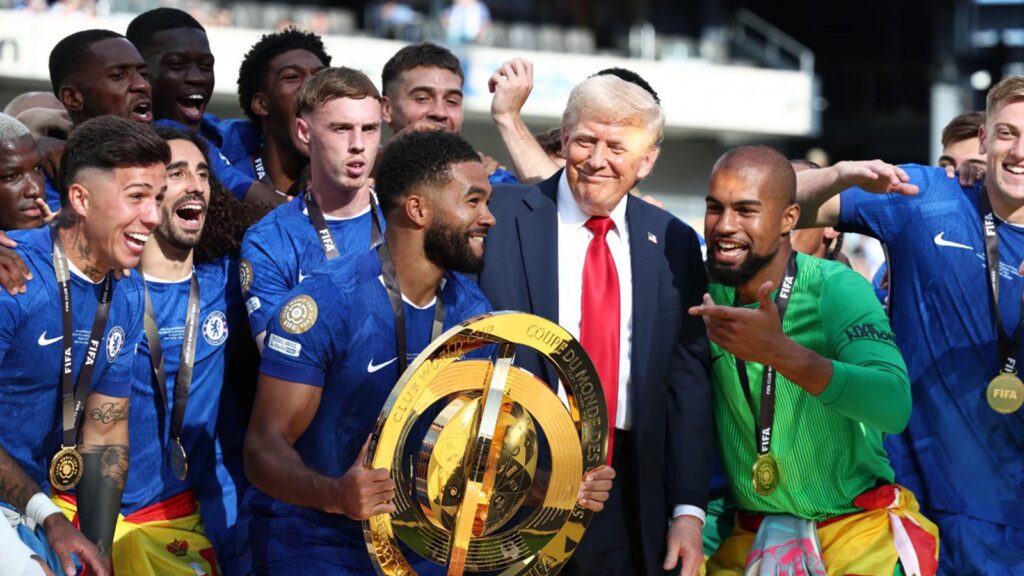The recent Club World Cup provided a spectacle of goals and unexpected turns, particularly for European giants. Beyond the thrilling scorelines, it served as a stark reminder: the world of club football is far more competitive than previously assumed, challenging the long-held notion of European invincibility.
A “Dead Rubber” That Spoke Volumes
Imagine a football match, ostensibly meaningless for progression, yet delivering eight goals, 50 attempts, and a perfect hat-trick. This was the Monday evening encounter between Portugal`s Porto and Egypt`s Al Ahly at MetLife Stadium. Despite the 4-4 draw being an entertaining spectacle of football where the sublime intertwined with the ridiculous—think world-class strikes alongside goalkeeping blunders—neither team advanced. The irony was palpable: a feast of goals after two previous matches where both teams’ inability to find the net had sealed their fate. It was the most enthralling “dead rubber” one could possibly conjure, a fitting theatrical backdrop for a surprising narrative twist.
Porto`s Unscripted Exit: A European Anomaly
While Al Ahly`s group stage exit, despite their recent investment in new players and a new manager, was largely anticipated given their pre-tournament odds, Porto`s elimination sent ripples across the footballing world. As two-time UEFA Champions League winners and pre-tournament favorites with a 60.5% chance of advancing, their early departure marked a significant, and unexpected, milestone. They became the first European team to be knocked out in the Club World Cup group stage without even facing another club from their own continent. This was not the redemption arc manager Martin Anselmi, just five months into his European tenure, had envisioned.
“We are not happy, obviously,” Anselmi stated. “We constantly tried to win the match.”
Their effort was evident; they clawed back from behind four times. Yet, the narrative persisted: Porto never held the lead, conceding tempo to Al Ahly for much of the game. While factors like a grueling European season, a sudden New Jersey heatwave, and a new manager finding his footing offer context, Al Ahly faced similar environmental and managerial challenges. Porto, quite simply, squandered a golden opportunity to reinforce an oversimplified, yet widely believed, hypothesis: that European teams effortlessly dominate global club football, especially against those outside of South America.
The Cracks in the Monolith: European Teams and the Global Game
The basic theory of European supremacy certainly holds weight, primarily due to immense historical and financial advantages. Porto`s squad, valued at an estimated $400 million, ranks amongst the top at the Club World Cup, dwarfing every non-European competitor. However, the true measure of a squad`s construction isn`t merely its price tag. Porto`s middling season—finishing third in Portugal`s Primeira Liga and an early exit from the UEFA Europa League—painted a picture of a team already struggling domestically. This iteration of Porto simply does not embody the “monolithic soccer powerhouse” image often projected onto European football.
Porto`s stumble is not an isolated incident. Monday saw Atletico Madrid also bow out. Other European participants have also demonstrated a surprising vulnerability:
- Borussia Dortmund appeared second-best in a 0-0 draw against Fluminense and were notably vulnerable even in a 4-3 win over Mamelodi Sundowns.
- Real Madrid, a perennial favorite, managed only a 1-1 draw against Al-Hilal.
- Inter scraped by with a 1-1 draw against Monterrey before a narrow 2-1 win over Urawa Red Diamonds.
Many of these European clubs are coming off demanding domestic seasons, some perhaps treating the Club World Cup as an extended postseason tour or an early preseason training camp. This might explain a perceived lack of urgency or the occasional tactical misstep.
The Unvarnished Truth: Clinical Edge Prevails
The overarching lesson from these matches is strikingly clear: the margins in global club football are far closer than many in Europe might have realized. In a game that often prioritizes intricate tactics and possession, the simple, brutal efficiency of being clinical in front of goal remains the easiest, most universal path to victory. Whether it`s a late-stage Champions League tie or a Club World Cup opener against an unfamiliar opponent, squandered opportunities carry the same heavy price.
The Club World Cup, once perhaps viewed by some European giants as a mere formality or a convenient trophy to add to the cabinet, is increasingly proving to be a genuine test. It`s a crucible where the romance of reputation often gives way to the harsh reality of performance, demonstrating that even for football`s traditional powerhouses, global dominance is an ambition that now demands unwavering focus and a truly clinical edge.

